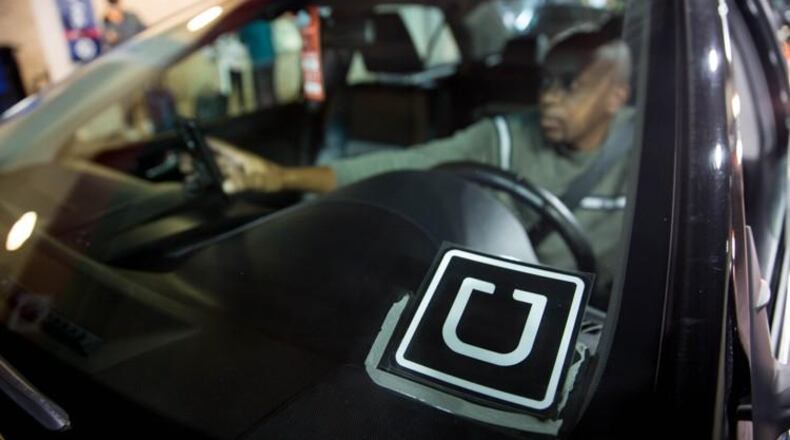Catching an Uber or taxi ride would cost a little less under a bill that cleared the Georgia Senate on Thursday.
Senators approved House Bill 105, which would replace a sales tax on rides for hire with a flat 50-cent fee per ride and a 25-cent fee for shared rides. The fee applies to taxis and limousines as well as ride-hailing services such as Uber and Lyft.
Taxi and limousine customers have long paid sales taxes — which vary by local jurisdiction but average 7% across Georgia. But for years ride-hailing customers paid no tax. The companies maintained that they weren't required to under state law, though the Georgia Department of Revenue disputed that.
Legislation that took effect in April required the ride-hailing companies to pay sales taxes. In Atlanta, the sales tax is 8.9%, and Uber and Lyft say that left their customers paying one of the highest ride-hailing taxes in the country.
The fee generally would cost customers less than the sales tax. Some rides would cost more than $1 less in metro Atlanta, depending on the trip.
HB 105 addresses that issue by applying the flat fees to all rides for hire. The revenue from the fee — up to $40 million annually — would be dedicated to transit programs. That would be a significant boost to state funding of public transportation.
A spokesman for Uber thanked lawmakers “for putting riders and drivers first and ensuring that rideshare continues to be an affordable transportation option for residents and visitors throughout the state.”
The bill also would provide tax relief for farmers and businesses affected by Hurricane Michael in 2018.
The Senate approved the measure by a vote of 41-3. It now goes to Gov. Brian Kemp for his signature.
About the Author
Keep Reading
The Latest
Featured


